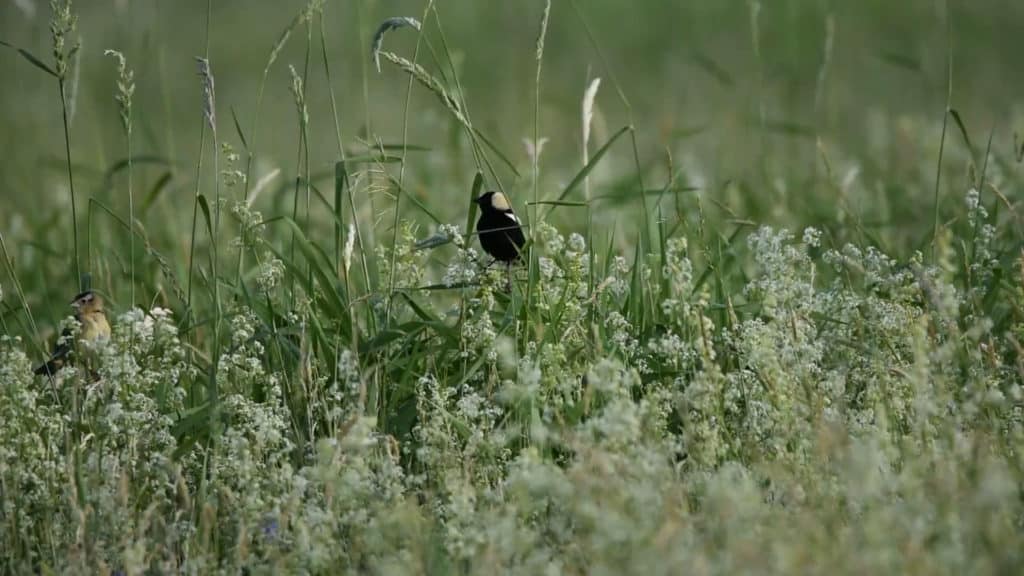
Bobolinks are one of the most charismatic and iconic species of our grasslands. They, along with other grassland species, have suffered the steepest declines of North American birds in recent decades, dropping 53% between 1970 and 2019. They face threats on several fronts, all across their range (www.stateofthebirds.org). Habitat loss is a driving factor in these widespread declines, particularly development and agricultural intensification.
The Somerset County Soil & Water Conservation District’s (SCSWCD) Ag Allies program aims to reverse this trend by protecting and enhancing habitat for all grassland birds, most of which are species of special conservation concern in Maine and throughout their North American range.
Since 2016, Ag Allies has worked with local landowners and land trusts across Maine to increase the nesting success of grassland birds through on-farm incentive payments, technical assistance, outreach and education. The program empowers farmers, landowners and land trusts to manage their fields with nesting grassland birds in mind, while also meeting their other farming goals. This program aligns with priority conservation actions in the state’s 2015 State Wildlife Action Plan.
This season, thanks to funding generated from sales and generous support of Peter Vickery’s book, Birds of Maine, Maine Audubon is helping Ag Allies expand grassland bird nesting habitat conservation activities throughout Maine. “It is particularly meaningful and poignant to have this partnership with Audubon as part of Peter Vickery’s legacy. Dr. Vickery was one of my first advisors when I was creating the Ag Allies program and we still use the Vickery Method for our field assessments,” says Ag Allies Program Manager Laura Lecker.
Peter’s wife Barbara Vickery, along with co-editor Scott Weidensaul, saw the book through to completion after Peter’s untimely death. Peter Vickery had specified that the royalties would go to a Birds of Maine Conservation Fund at Maine Audubon and hoped the editorial team would be consulted on how funds might be spent. Barbara Vickery says, “This is exactly the kind of outcome we were hoping for.”
New this year will be educational programs—including both lectures and field sessions—at Maine Audubon’s Gilsland Farm Audubon Center in Falmouth, where farmers and anyone interested can learn more about the conservation needs of grassland birds, how to enhance field habitat for breeding birds, and how to enroll in the Ag Allies program, including scheduling a visit from grassland bird expert Maeve McGowan. Dates will be announced this summer; visit the Maine Audubon website (maineaudubon.org) for more details.
Maine Audubon Conservation Director Sally Stockwell says, “I am thrilled that Maine Audubon can now partner with Ag Allies to work with farmers, land trusts, and towns across the state to use this innovative but practical solution to provide high quality breeding habitat for our declining grassland birds. Please join us!”
